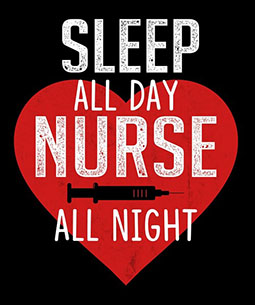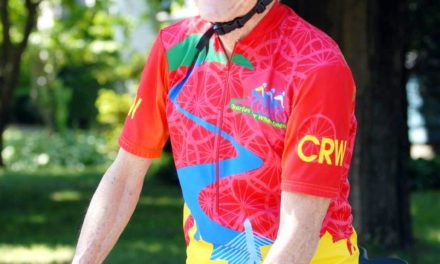By Toni L. Eaton, RN, BSN, MS, President & CEO of Old Colony Hospice & Palliative Care
All in a day’s work. It’s what most of us experience as we go about the business of our lives. But what about the night shift? Millions of people work through the night so the rest of us can move through our days.
Nurses, especially hospice nurses, are among those who work the night shift, along with folks from nearly every other industry, such as retail, customer service, construction, transportation, and urgent medicine. While the rest of us dream, they are busy taking care of patients, preparing food, doing security checks, plowing the roads, and responding to emergencies such as traffic accidents, fires, and other emergencies.
You may or may not have noticed from posters and announcements that last month, the American Nurses Association celebrated National Nurses Week, beginning on May 6 and ending on May 12. The twelfth is the birthday of Florence Nightingale, who is considered the founder of modern nursing. Most people agree that nurses deserve to be honored for their dedication to and for how they care for their patients, and they do. I’ve seen the difference they make in people’s lives.
A lesser-known May holiday, though, may have slipped by you. That is the National Third Shift Workers Day, also the National Night Shift Workers Day. It is celebrated on the second Wednesday in May and is dedicated to people who work overnight jobs while the rest of us sleep.
Most of us start the day as the sun comes up. The night shift starts the day when the sun goes down or later. We’re a 24/7 society, so it makes sense that we need and rely on night workers. But rarely do we acknowledge or appreciate the people who work in the wee hours. They often go unnoticed, like the inner workings of a watch, but they are vital to keeping the country running. According to the U.S. Bureau of Labor Statistics, between 15 and 20 million Americans work outside daytime hours.
At Old Colony Hospice, we have amazing nurses on staff who work the night shift. They aren’t just on call; they are actually on alert and working their shift. If a caregiver calls, they help them with advice and information. If a patient needs them, they come to the home: to help a caretaker lift a patient who has fallen, to help adjust medication to ease the pain, to check on a patient’s condition during their end-of-life journey. Night can be the loneliest time for someone on hospice and their caregivers. Just knowing someone is out there for you 24 hours a day, especially in the middle of the night, can be a huge comfort.
National Nurses Week and National Night Shift Workers Day remind us that it’s important to take a moment to thank those who sometimes go unthanked. If you didn’t have a chance to thank a night worker or a nurse who is a night worker, it’s never too late—although you might have to stay up past your bedtime.
Toni L. Eaton, RN, BSN, MS, is the President & CEO of Old Colony Hospice & Palliative Care of West Bridgewater, a dynamic non-profit hospice serving more than 55 communities south of Boston. OCH also runs the Dr. Ruth McLain Hospice Home in Braintree. A native and resident of the South Shore, Toni brings her compassion and experience as a nurse, veteran, and community leader to her insightful columns for South Shore Senior News. She is also the founder of Sunny Paws Dog Rescue. Several groups have honored her leadership, including the South Shore Women’s Business Network. She currently sits on the board of the Hospice & Palliative Care Federation of Massachusetts. For more information, call (781) 341-4145 or visit Old Colony Hospice & Palliative Care at www.oldcolonyhospice.org.




